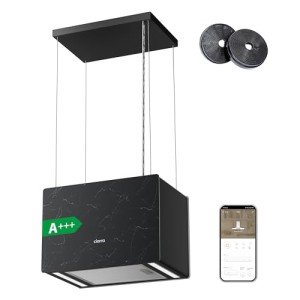자유게시판
| 제목 | 20 Trailblazers Setting The Standard In Island Hob |
|---|---|
| 작성자 | Kristofer |
| 조회수 | 39회 |
| 작성일 | 25-05-20 18:27 |
| 링크 |
본문

The Island Vent Hood: A Comprehensive Guide to Choosing and Installing the Perfect Kitchen Feature
In contemporary kitchen design, the island vent hood has ended up being a vital centerpiece, perfectly integrating performance with visual appeal. With the increase of open-concept home, where kitchens are integrated with dining and living locations, the value of a properly designed ventilation system has actually ended up being paramount. This article explores what an island vent hood is, the various types readily available, crucial features to think about, setup tips, and FAQs surrounding this important kitchen part.
What is an Island Vent Hood?
An island vent hood is a kitchen ventilation system designed to be installed above an island cooktop or range. Unlike standard wall-mounted hoods, island hoods are suspended from the ceiling, providing a clear view of the cooking location while effectively removing smoke, steam, and odors from the kitchen. This makes island hoods an appealing choice for open designs while ensuring a tidy and comfy cooking environment.
Kinds Of Island Vent Hoods
When picking an island hood kitchen vent hood, it is vital to comprehend the different types offered in the market. Here are the primary categories:
| Type | Description |
|---|---|
| Ducted | Ventilation is directed outside, supplying the best air quality by expelling air and smells. |
| Ductless | Uses filters to clean the air and recirculate it back into the kitchen; simpler to set up. |
| Convertible | Can run in both ducted and ductless modes, offering flexibility in setup. |
| Under-Cabinet | Mounted under kitchen cabinetry; normally lower output, ideal for smaller sized kitchen designs. |
Key Features to Consider
Selecting the best island vent hood includes numerous critical elements. Here are the vital features to think about:
- Size: The cooker hood island must be at least as large as the cooktop. Ideally, it should extend 6 inches on either side for optimum efficiency.
- CFM Rating: The Cubic Feet per Minute (CFM) rating suggests the hood's ventilation power. Greater CFM is required for heavy cooking, while lower CFM might suffice for lighter use.
- Noise Level: Measured in sones, a lower sone rating indicates a quieter operation. A peaceful fan is especially crucial in open-concept areas.
- Lighting: Many island hoods come geared up with built-in lighting. LED lights are popular for their energy efficiency and longevity.
- Style: Island vent hoods been available in different styles, consisting of contemporary, standard, and commercial. Select a hood that complements the overall kitchen visual.
Installation Tips
Installing an island vent hood can be an intricate process. Here are some vital pointers to assist in the setup:
- Check regional codes and policies to ensure compliance with installation height and electrical requirements.
- Determine the hood's height: The top of the hood must be 30 to 36 inches above the cooking surface area, depending upon the manufacturer's recommendations.
- Protect the mounting bracket: Ensure that the installing bracket is properly anchored to the ceiling to support the weight of the hood and motors.
- Ductwork considerations: If utilizing a ducted system, make sure appropriate duct size and layout for optimum air flow. Prevent sharp bends in ducting, which can impede air motion.
- Electrical setup: Ensure that the electrical connections fulfill your hood's power requirements, and think about employing a certified electrical contractor for complicated setups.
Expense Considerations
The cost of an island vent hood can range considerably depending on features, products, and brand name. Below is a breakdown of possible costs associated with purchasing and installing these hoods:
| Cost Element | Estimated Range |
|---|---|
| Basic Models | ₤ 300 - ₤ 600 |
| Mid-range Models | ₤ 600 - ₤ 1,200 |
| High-End Models | ₤ 1,200 - ₤ 3,000+ |
| Installation Costs | ₤ 200 - ₤ 500 |
Frequently Asked Questions
1. How often should I clean my island vent hood?Regular cleansing is recommended, with deep cleaning at least when a month, specifically if you cook frequently. 2. Can I set up an island vent
hood myself?While it is possible, professional
installation is recommended for safety and optimum performance, especially with ductwork and electrical connections. 3. Are ductless island hoods effective?Ductless hoods can effectively filter
smoke and smells, however they might not be as powerful as ducted models. They need regular filter replacements and upkeep. 4. What sort of upkeep does an island vent hood require?Regular cleaning of filters, lights, and hoods, minimalist island Range hood in addition to checking for any wear and tear on motors or ductwork is vital for maintaining efficiency
. 5. What type of filters must I use?Most Minimalist island range hood vent hoods utilize aluminum or charcoal filters. Aluminum filters are recyclable, while charcoal filters require to be changed
occasionally. The island vent hood is an essential element of a modern kitchen, offering exhaustion of undesirable smells and making a striking style declaration. Picking the ideal type, understanding important
functions, and adhering to appropriate installation strategies will make sure ideal efficiency and longevity of this kitchen home appliance. Whether you are a skilled chef or a periodic home cook, the right island extractor hoods vent hood can considerably improve your cooking experience. By following the standards and considerations laid out in this article, property owners can make educated decisions and delight in a cleaner and more enjoyable cooking environment.




